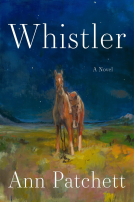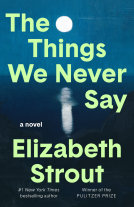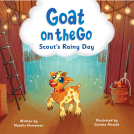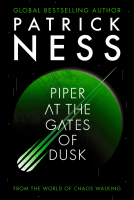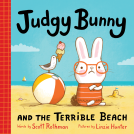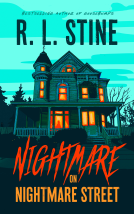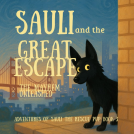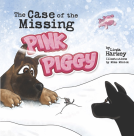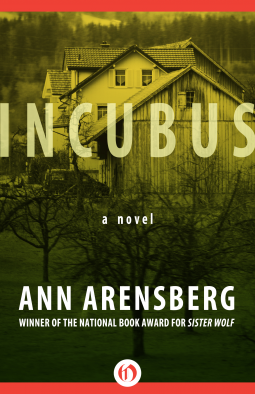
Incubus
A Novel
by Ann Arensberg
This title was previously available on NetGalley and is now archived.
Send NetGalley books directly to your Kindle or Kindle app
1
To read on a Kindle or Kindle app, please add kindle@netgalley.com as an approved email address to receive files in your Amazon account. Click here for step-by-step instructions.
2
Also find your Kindle email address within your Amazon account, and enter it here.
Pub Date Jul 08 2014 | Archive Date Oct 08 2014
Open Road Integrated Media | Open Road Media
Description
It begins with the theft of six candles from the church altar, a few herbs found strewn in the local graveyard. In the summer of 1974, the prosperous farming community of Dry Falls, Maine, is hit by a brutal heat wave. Crops fail. Drought blights once-verdant lawns. Men inexplicably lose all interest in sex, while women complain of erotic nocturnal visitations. Farm animals give birth to monstrosities. An unholy, unimaginable force is disrupting the natural order—and it seems to be specifically targeting Dry Falls.
Narrated by the careful and practical Cora Whitman, wife of the town pastor, this tale of creeping strangeness quickly turns sinister. Incubus subtly builds to its shattering climax with Cora at its epicenter. Expertly interweaving themes of faith, religion, and marriage with that of the supernatural, this modern horror classic will enthrall fans of Ann Arensberg and attract a legion of new readers.
Available Editions
| EDITION | Ebook |
| ISBN | 9781480401242 |
| PRICE | $14.99 (USD) |
Average rating from 29 members
Featured Reviews
 OutlawPoet ., Reviewer
OutlawPoet ., Reviewer
Literary Horror
As I finished this book, I imagined that this would be the sort of book that you either love or hate. This is literary horror. Subtle, slightly surreal, and very quiet.
If you are more into wham bam thank you ma'am slasher fic or even into Stephen King's contemporary horror, this one may not be for you. This is more the type of horror you read on a dark night with a cup of tea by your side and a cat on your lap.
The town itself almost becomes a character in the tale, becoming more and more bleak and horrifying as the story winds itself towards its conclusion.
It's a slower and slightly uneven read, but if you put in your time, the creepiness grows (never gore), culminating in a very satisfying ending.
Recommended for fans of quiet literary horror.
Incubus is not your standard 'gore'/'shock' horror novel, there is much more going on here. Set in Dry Falls, a small rural town in Stephen KIng heartland, Maine. Narrated by Cora , the wife of the local Episcopal priest Henry Lieber, who tells a disturbing tale of an unusual heat wave which hits the town in 1974, it brings with it strange happenings with local animals bearing deformed offspring, and then the women of the town start reporting nightly disturbances. They claim that they are experiencing nightmares but feel as if they are awake during them, most unnerving is their reports of a sense of sexual assault occurring during these nightmares. All say they feel paralysed, and they sense a presence (many assume it's their husbands, yet their husbands claim to be sleeping), and then terrifying attacks assaults take place. Alongside these occurrences we witness Henry dealing with loss of faith, but these supernatural happenings fascinate him and Cora tells of Henry's near obsession with the dark side of faith.
In another author's hands Incubus may have fallen flat, but Ann Arensberg has managed to produce a literary, horror novel which works not only on a 'horror' level but she deals with biblical/spiritual/pagan faith and belief. Unsetttling, disturbing and highly readable.
Review: INCUBUS by Ann Arensberg
A few decades ago, my first introduction to the concept of Incubi was Frank de Felitta s rather graphic horror novel, "The Entity," published in 1978. I found it very disturbing, but since then the concept has not often recurred to me. I still remember, though, the impression of implacability, the impossibility of escape from.the encroaching horrors.
Ann Arensberg' s INCUBUS is a very different sort of novel. For one aspect, this is "literary horror," not blood and grue "splatterpunk." It's not designed to titillate, scandalized, and terrify.. well, maybe terrify, because here is that same encroaching implacability again, that juggernaut of terror and danger approaches, except you don't hear it, you don't see it. Throughout the book I felt as if I stood beside a farmhouse window at twilight of an overcast day, knowing something dangerous was near, but unable to peer through the filmy pebblesd glass. I also held the same kind of recurring fearful tensions as while reading Conan Doyle's "The Hound of the Baskervilles," and I.can easily imagine this Maine story transplanted to bleak English moors. It has that same articulated, genteel, style of narrative.
 Elaine S, Educator
Elaine S, Educator
I really enjoyed this book! It was not my usual genre, but the synopsis drew me in and I decided to give it a go.
The characters seemed very life-like and the descriptions of their personalities made you feel as if you actually knew them. I really connected with them and cared about them, and I find that a must in a book, as you cannot wait to get to the end to find out what happens to them. The descriptions of locations were very vivid and I could picture them clearly in my mind.
All in all, this was a very enjoyable fast-paced and incredibly well researched book and I will be keeping my eyes open for more books by this Author.
Thank you to Net Galley and the publisher for a pre-published copy;
 judy b, Reviewer
judy b, Reviewer
This is the first book I have read from this author,but hopefully not the last
 Kel M, Media/Journalist
Kel M, Media/Journalist
Science Fiction Friday: Summer brain candy
Dhalgren by Samuel R. Delaney with a foreward by William Gibson (Open Road Media,$14.99)
The Fallen by Dale Bailey (Open Road Media, $5.99)
Incubus: A Novel by Anne Arensburg (Open Road Media, $9.99)
The Steampunk Trilogy by Paul Di Filippo (Open Road Media, $7.99)
The Tesla Gate by John D. Mimms (Open Road Media, $9.99)
With the summer already half over, it’s time to grab all the brain candy that can be squeezed into the short four weeks before planning for the fall semester takes over my schedule.
Fortunately, Open Road Media makes that easy for me with their science fiction series.
Unfortunately, Dhalgren, the classic novel from Samuel R. Delany that’s been called “the Ulysses of science fiction” (in reference to James Joyce’s masterwork), is definitely not what you’d call “brain candy.” It is, in fact, a wild bit of fantastical, post-apocalyptic (or perhaps apocalyptic, in the sense of “unveiling”) metafiction that happens to be classified as science fiction.
The caliber of the writing was top-notch, but it took some thought to follow. Dhalgren opens with a bit of poetry, then narrative that finds a man awakening in a strange place with no memory of who he is or what he’s to do. He immediately meets a woman and has sex with her; then she leads him away before turning into a tree.
My degrees are in English, so when I see a woman turning into a tree, I tend to think, “mythology!” Yep, that’s a dryad. And, in fact, this novel seems to be a new, post-atomic retelling of Joyce’s novel, using the same framework of Greek mythology as an organizing principle. It also functions as a sort of ouroboros, coming around to its own beginning in the end. Most readers will either love it or hate it, but it’s definitely apocalyptic in the most traditional literary sense.
Dale Bailey’s The Fallen, originally published in 2002, is apocalyptic in another sense. The mining town of Saul’s Run is a quiet place, but every generation or so, a whole bunch of bad things happen. When Henry Sleep, who left for greener pastures years ago, returns to care for his ailing father, he’s thrust right into the midst of whatever it is that makes Saul’s Run different—and it lives in one of the abandoned mines. Of course, Henry and a friend had a run-in with this “guardian angel” when he was a boy. And when it doesn’t get its way, it’s not so angelic as one might expect.
The Fallen is a nice combination of horror and mythology, reminding us that there are some powers out there that simply can’t be pleased all the time.
Incubus, a novel by Ann Arensburg (she won an American Book Award in 1981 for Sister Wolf), is also a horror/mythology combination, but it’s got a seriously literary bent. Set in a small Maine town in 1974, the main character is the wife of the local Episcopal priest. Following a rare and strange heat wave, odd things happen: animals bear deformed young and the town’s women begin to be disturbed in their sleep. This is not a blood-and-gore horror tale, but instead moves through the heart and history of the town and its residence to look for the darkness that drew this evil spirit to them.
Originally published in 1995, Paul Di Fillippo’s The Steampunk Trilogy, three novellas, is among the standard-bearers bringing the mechanical tech science fiction genre forward to its 21st century blossoming. Di Filippo’s stories include historical characters with fantastical elements—say, a less-than-human Queen Victoria, and a love affair between the great American poets of the last century. These are wonderful stories, if not true classics of the genre, and its great to have them available in ebook form.
The only new book in this batch is John D. Mimms’ novel The Tesla Gate, which is the first of a trilogy—and that’s a good thing, because the this clearly reads as the first part of something larger.
Thomas Pendleton, our hero, has been an absent husband and father because of his devotion to work. His wife and son have gotten used to going places without him, but one day, they are killed in a car accident. Thomas is a grieving mess, but as he’s struggling with his loss, a cosmic storm in the atmosphere creates a strange event: Anyone who has died and refused to go on to the afterlife becomes visible. These “Impals”—for “impalpables”—can interact with humans.
And of course, Thomas’s son is among them.
This is a really intriguing premise, but the execution doesn’t quite live up to the promise. In order for readers to accept a “scientific” reason for return from the grave, we need to have some pretty solid writing. That said, if readers are willing to suspend their disbelief, the action as Thomas tries to keep his son away from frightened people who want to round up the “Impals” is certainly fine.
 Michelle M, Reviewer
Michelle M, Reviewer
I finally got a chance to finish reading Incubus by Ann Arensberg. The book is set in 1975 and it reads like it was written back then. It unfolds gradually and I had to find some distraction-free reading time to really get into the plot.
Here's the description from Amazon:
It begins with the theft of six candles from the church altar, a few herbs found strewn in the local graveyard. In the summer of 1974, the prosperous farming community of Dry Falls, Maine, is hit by a brutal heat wave. Crops fail. Drought blights once-verdant lawns. Men inexplicably lose all interest in sex, while women complain of erotic nocturnal visitations. Farm animals give birth to monstrosities. An unholy, unimaginable force is disrupting the natural order—and it seems to be specifically targeting Dry Falls.
Narrated by the careful and practical Cora Whitman, wife of the town pastor, this tale of creeping strangeness quickly turns sinister. Incubus subtly builds to its shattering climax with Cora at its epicenter. Expertly interweaving themes of faith, religion, and marriage with that of the supernatural, this modern horror classic will enthrall fans of Ann Arensberg and attract a legion of new readers.
The narrator, Cora, writes a newspaper column about gardening. It's interesting to watch her turn those talents to tell the story of her husband's studies into the supernatural. (A bit of warning here -- this book is very graphic when it comes to the sexual elements. Cora is detatched and clinical, but there's a lot of detail.)
Readers who liked this book also liked:
Natalie Horseman
Children's Fiction, Outdoors & Nature, Parenting, Families, Relationships
